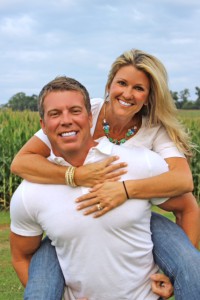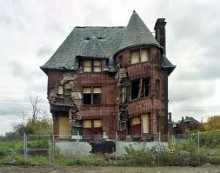Marion Kickett, Director of the Centre for Aboriginal Studies at Curtin University in Perth, shares the harrowing story of Ruby and describes how her early experiences impacted on her life. By forgiving people involved in these terrible events, Ruby started a healing process which led to her realising a dream. Sharing Culture. 4 October 2013. [9’42”]
Ruby’s Healing Story
 It’s hard to believe that it is over seven years ago since I launched Sharing Culture, an educational initiative to facilitate the healing of intergenerational trauma. [I don’t upload new content on the website now, but the content is still there for viewing.]
It’s hard to believe that it is over seven years ago since I launched Sharing Culture, an educational initiative to facilitate the healing of intergenerational trauma. [I don’t upload new content on the website now, but the content is still there for viewing.]
It is also over seven years since Michael Liu and I went out with Professor Marion Kickett to her home country in York to film her describing her life, country, culture, spirituality, family, education and resilience. Marion is a Noongar Elder from the Balardong language group, who is Director of the Centre for Aboriginal Studies at Curtin University in Perth.
‘Ruby’s Story’: Marion Kickett
 It’s hard to believe that it is over seven years ago since I launched Sharing Culture, an educational initiative to facilitate the healing of intergenerational trauma. It is also over seven years since Michael Liu and I went out with Professor Marion Kickett to her home country in York to film her describing her life, country, culture, spirituality, family, education and resilience. Marion is a Noongar leader from the Balardong language group, who is Director of the Centre for Aboriginal Studies at Curtin University in Perth.
It’s hard to believe that it is over seven years ago since I launched Sharing Culture, an educational initiative to facilitate the healing of intergenerational trauma. It is also over seven years since Michael Liu and I went out with Professor Marion Kickett to her home country in York to film her describing her life, country, culture, spirituality, family, education and resilience. Marion is a Noongar leader from the Balardong language group, who is Director of the Centre for Aboriginal Studies at Curtin University in Perth.
Classic Blog: ‘How Forgiveness Can Change Your Life’ by Peter Breggin
 I have a high regard for the work of the psychiatrist Peter Breggin. Here is an article he wrote on forgiveness for the Huffington Post earlier in the year. Forgiveness plays a key role in recovery.
I have a high regard for the work of the psychiatrist Peter Breggin. Here is an article he wrote on forgiveness for the Huffington Post earlier in the year. Forgiveness plays a key role in recovery.
‘Early in 1865, in his second inaugural address, little more than a month before his assassination, Abraham Lincoln stood before the bloodied, fractured United States to speak about forgiveness, the letting go of hatreds, and the binding of wounds. He implored the people of America:
“With malice toward none, with charity for all, with firmness in the right as God gives us to see the right, let us strive on to finish the work we are in, to bind up the nation’s wounds, to care for him who shall have borne the battle and for his widow and his orphan, to do all which may achieve and cherish a just and lasting peace among ourselves and with all nations.”
‘An interview with Matt and Amy Baumgardner’ by Veronica Valli
 Here is a moving Story from Veronica Valli’s website.
Here is a moving Story from Veronica Valli’s website.
‘A little while ago I was asked to review an extraordinary book called: From this day forward, A love story of faith, love and forgiveness by Amy and Matt Baumgardner. I had interviewed Amy Baumgardner previously for my Recovery Rocks interview series. Amy just has one of those jaw-dropping stories of recovery. Her story is so extraordinary that she was featured on Oprah’ Life class with Iyanla Vanzant.
Amy lost all sight of what was important to her and her drinking took over, one day she packed her kids into the car and drove them whilst she was drunk. She hit a tree and the accident left her 5-year-old in a critical condition. This was the beginning of the end for Amy, finally realizing she had a problem she began the long painful and guilt-ridden task of getting sober.
But how does a family recover from this? How does a husband forgive his wife for almost killing their child? How does a mother forgive herself? How can you repair a marriage with this kind of devastation and pain?
20 Things to Start Doing in Your Relationships
 Relationships are key in recovery. So let’s look at some things that will facilitate healthy relationships, from Marc and Angel Hack Life.
Relationships are key in recovery. So let’s look at some things that will facilitate healthy relationships, from Marc and Angel Hack Life.
‘Family isn’t always blood. They’re the people in your life who appreciate having you in theirs – the ones who encourage you to improve in healthy and exciting ways, and who not only embrace who you are now, but also embrace and embody who you want to be. These people – your real family – are the ones who truly matter.
Here are twenty tips to help you find and foster these special relationships.
1. Free yourself from negative people. Spend time with nice people who are smart, driven and likeminded. Relationships should help you, not hurt you. Surround yourself with people who reflect the person you want to be. Choose friends who you are proud to know, people you admire, who love and respect you – people who make your day a little brighter simply by being in it.
‘Powering America’ by John McKnight
 I want to follow up John McKnight’s video from the other day with one of his blogs, from March 2011.
I want to follow up John McKnight’s video from the other day with one of his blogs, from March 2011.
‘In a neighborhood, people are empowered by the work they do together. Often, they use this power to confront institutions and advocate for the neighborhood’s self-interest. In this kind of action, power is understood as our ability to get someone else to do something for us. This is the consumer power of confrontation.
The other kind of neighborhood power results when we come together to create something for ourselves – from ourselves. This is the power of citizens engaged in community building.
Marion’s Story: My Family, Mother’s Side
Marion’s mother was well-educated and had lived with wealthy white families. She taught her the ‘white’ way of doing things.
Strategies to Face Adversity: Letting Go, Forgiveness and Healing
Every participant spoke of the healing process and how before such a process can begin, they had to let go of negative emotions such as anger and hatred.
Dealing with Betrayal and Abandonment
 Beth Burgess flagged this article which appeared on Hubpages. Sometimes things happen in your recovery that are difficult to come to deal with. Here is some excellent advice.
Beth Burgess flagged this article which appeared on Hubpages. Sometimes things happen in your recovery that are difficult to come to deal with. Here is some excellent advice.
Remain Objective
It is all too easy to blame ourselves when we have been betrayed or abandoned, and to take the actions of others as a personal affront. Most people’s behaviour is a reflection of their own shortcomings or mental state rather than a rejection of you personally.
Try to be objective about the situation – ask yourself if you genuinely did anything wrong, or was this situation brought about because of the other person’s issues. If you do feel that you were somewhat to blame, what can you learn from this occasion and how can you do better in future.
‘How Forgiveness Can Change Your Life’ by Peter Breggin
 I have a high regard for the work of the psychiatrist Peter Breggin. Here is an article he wrote on forgiveness for the Huffington Post earlier in the year. Forgiveness plays a key role in recovery.
I have a high regard for the work of the psychiatrist Peter Breggin. Here is an article he wrote on forgiveness for the Huffington Post earlier in the year. Forgiveness plays a key role in recovery.
‘Early in 1865, in his second inaugural address, little more than a month before his assassination, Abraham Lincoln stood before the bloodied, fractured United States to speak about forgiveness, the letting go of hatreds, and the binding of wounds. He implored the people of America:
“With malice toward none, with charity for all, with firmness in the right as God gives us to see the right, let us strive on to finish the work we are in, to bind up the nation’s wounds, to care for him who shall have borne the battle and for his widow and his orphan, to do all which may achieve and cherish a just and lasting peace among ourselves and with all nations.”


